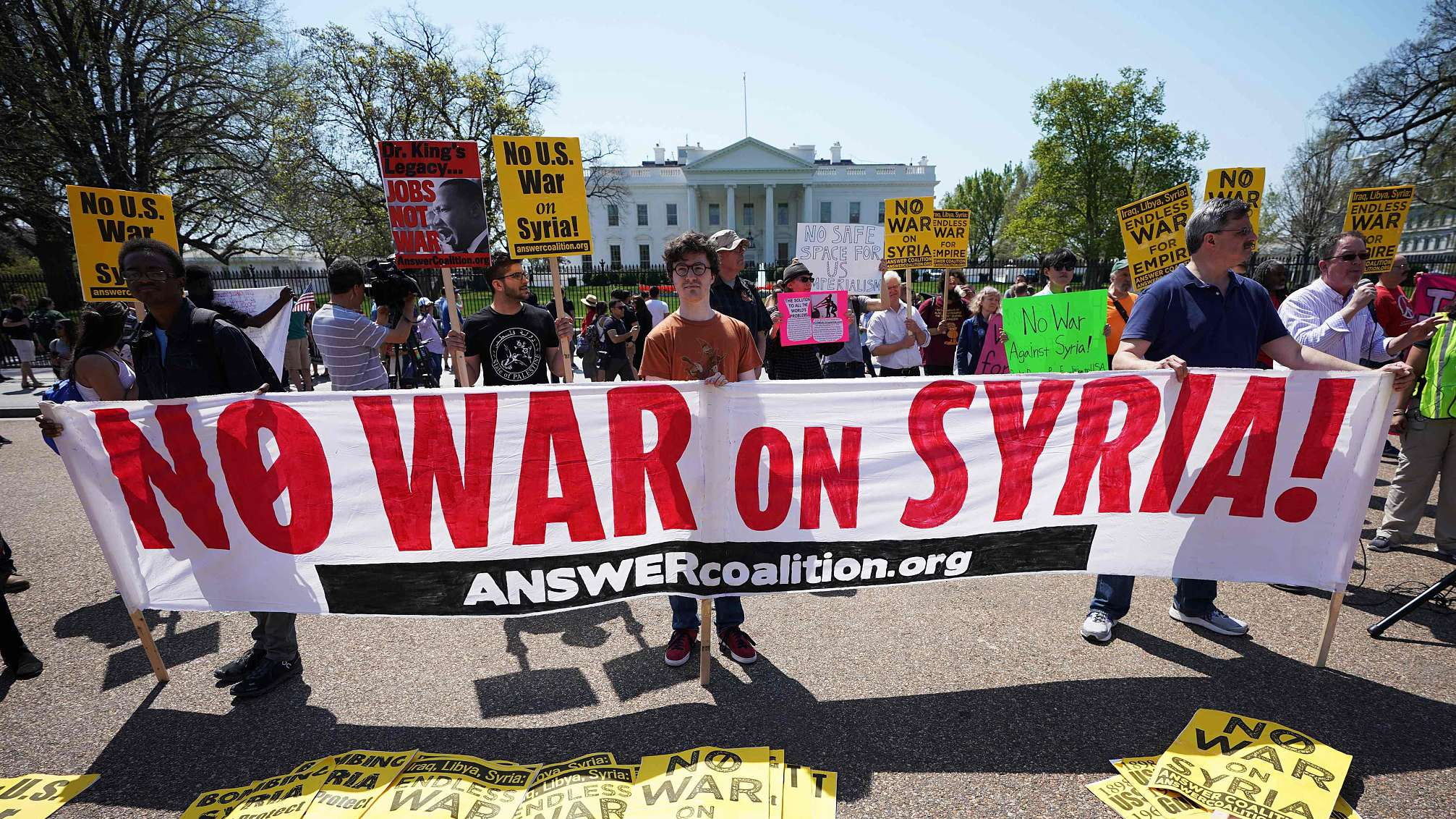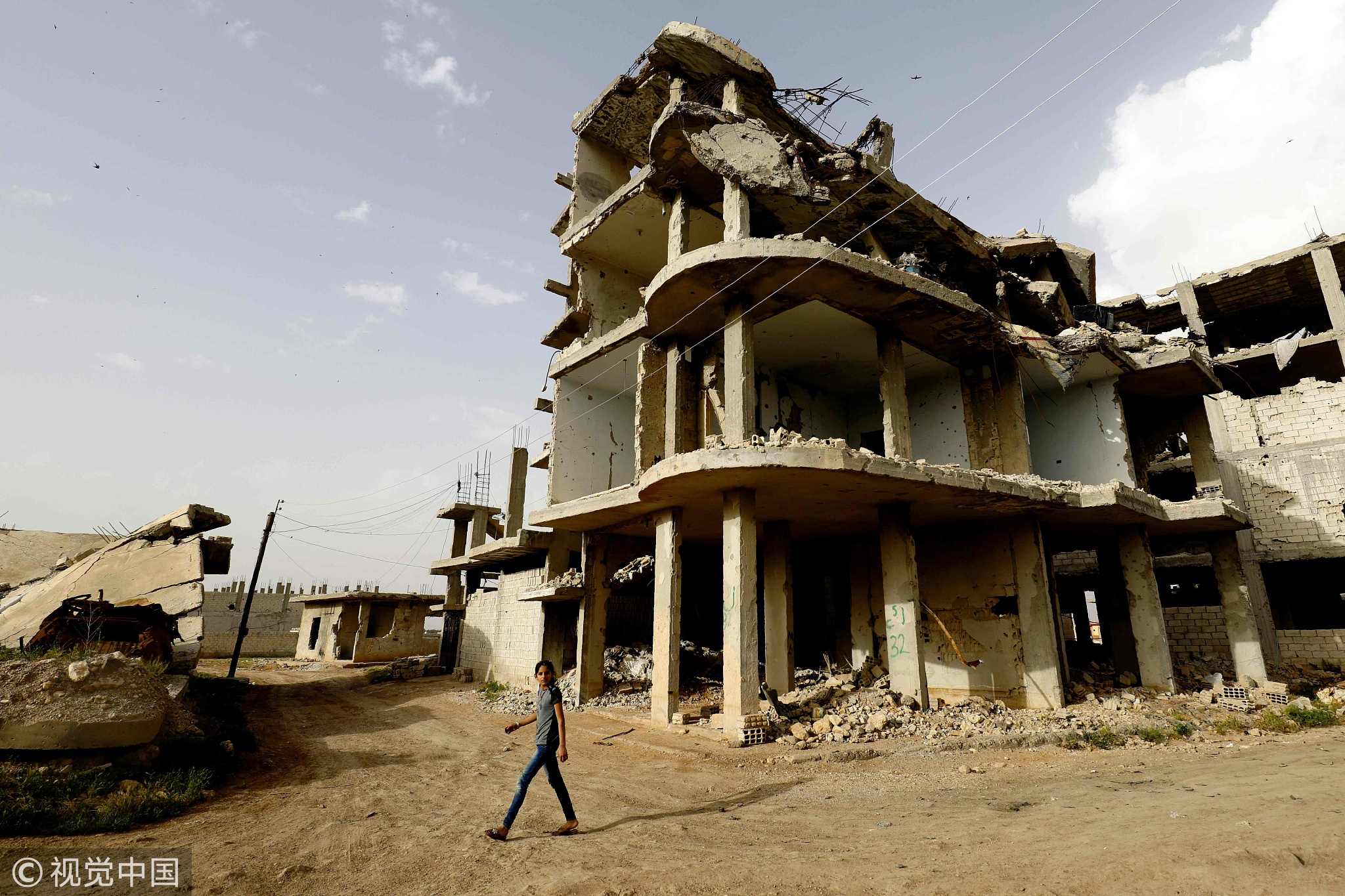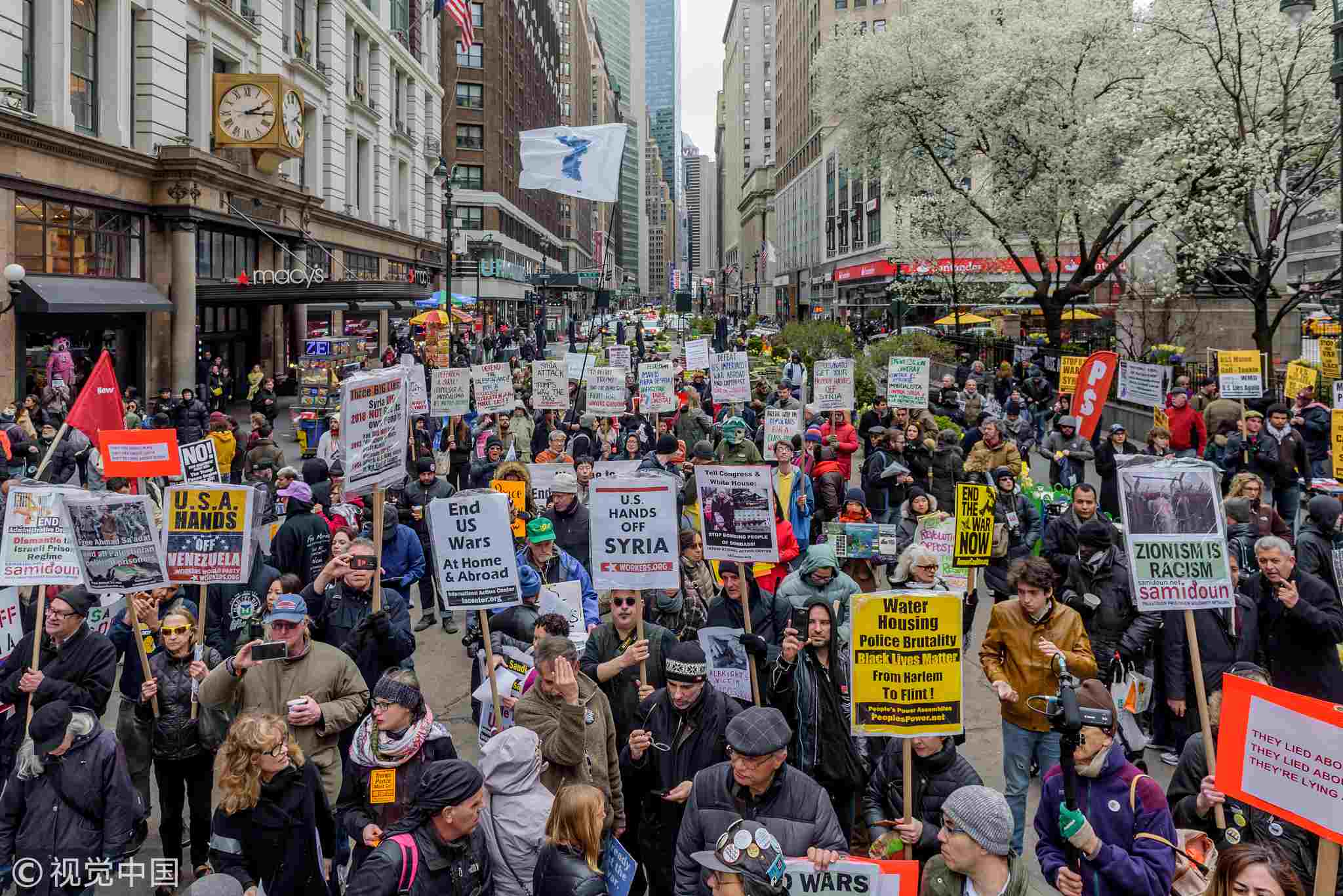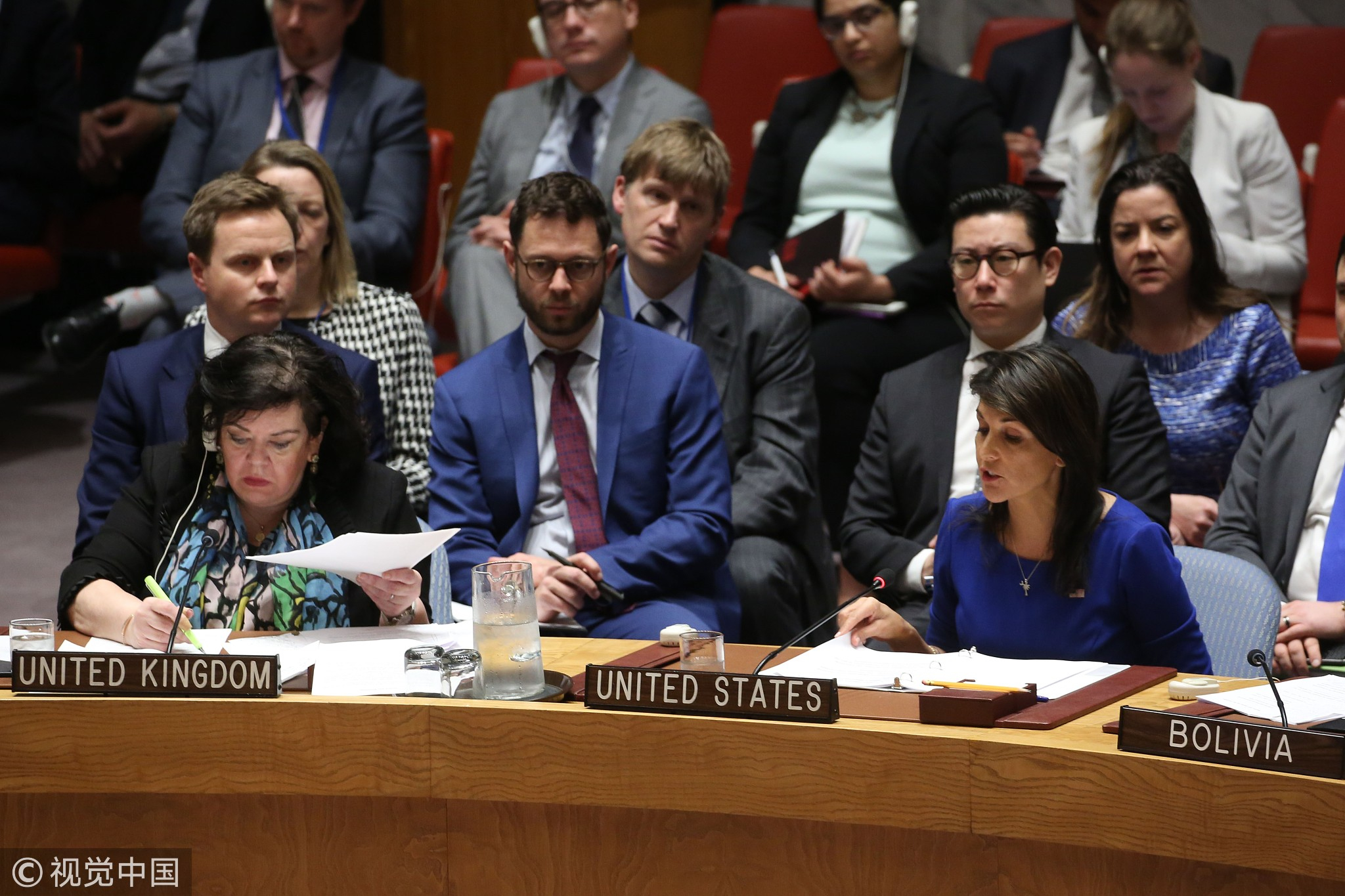
Opinions
17:34, 29-Aug-2018
Opinion:Will Washington directly intervene in Syria?
Updated
17:26, 01-Sep-2018
Wang Jin

Editor's note: Wang Jin is a research fellow at the Charhar Institute and at the Syria Research Center at the Northwest University of China. The article reflects the author's opinion, and not necessarily the views of CGTN.
Washington on Tuesday warned Russia and the Syrian government against using chemical weapons on Syrian civilians, and threatened that US forces "will respond to any verified chemical weapons use in Idlib or elsewhere in Syria".
US President Donald Trump's national security adviser John Bolton said Washington would respond "very strongly" if the forces of the Syrian regime used chemical weapons to retake Idlib.

A Syrian man walks past destroyed buildings in Kobane on May 27, 2018. /VCG Photo.
A Syrian man walks past destroyed buildings in Kobane on May 27, 2018. /VCG Photo.
Syrian stability precludes US interference
In April, the US, France, and Britain launched joint missile strikes on Syrian targets in response to an alleged chemical weapons attack in the town of Douma, even though the Russian and Syrian governments denied the chemical attack even took place.
Given that Russia is deploying a dozen warships to the Mediterranean Sea in what one of the country's newspapers called Moscow's largest naval deployment since it entered Syria conflict in 2015, and Syrian government forces are planning a massive assault on its northwestern province of Idlib, which is the last major rebel-held enclave, Washington's threat might demonstrate its intention to directly intervene in the Syria civil war.
Washington has become a major and important supporter of both Syria's rebel forces and opposition political parties.
Before the Syrian civil war erupted in 2011, US media called on the citizens to "rise against" the government of Bashar al-Assad, and after the conflict broke out, Washington and its allies, especially its Middle East allies such as Turkey and Saudi Arabia, held international meetings such as the "Friends of Syria", and started to recognize the Syrian opposition parties as being the "legal representative of Syrian people".
In addition, Washington also provided military weapons, training, and money to some of what the media referred to as "moderate rebels", such as the Free Syria Army.

Antiwar and social justice groups organized a demonstration against the US bombing of Syria on April 15, 2018, in New York. / VCG Photo.
Antiwar and social justice groups organized a demonstration against the US bombing of Syria on April 15, 2018, in New York. / VCG Photo.
However, after years of civil war, Syrian government forces are gradually close to their final victory of retaking the country. Ever since mid-2015, government forces, with the backing of Iran and Russia, successfully retook several rebel-controlled areas, including the province of Aleppo in Northwestern Syria, Eastern Ghouta in central Syria, and Derra Province in Southern Syria.
The rebel groups were either beaten on the battlefield by government forces or sent to Idlib Province based on agreements signed between the Syrian government and several rebel groups.
Washington's threat isn't worth considering
After Donald Trump assumed the presidency in 2017, Washington has largely inherited Obama's Syria policy.
On the one hand, Washington lacks the willingness and capability to directly intervene in the Syrian civil war, given the US has wasted tens of billions of US dollars in Afghanistan and Iraq since 2003.

Nikki Haley, US Ambassador to the United Nations(UN) gives a speech during a UN Security Council meeting following the US, UK and France attacks on chemical weapons positions in Syria at UN Headquarters in New York on April 14, 2018. /VCG Photo.
Nikki Haley, US Ambassador to the United Nations(UN) gives a speech during a UN Security Council meeting following the US, UK and France attacks on chemical weapons positions in Syria at UN Headquarters in New York on April 14, 2018. /VCG Photo.
On the other hand, after chemical weapons use was reported in both 2017 and 2018, Trump decided to strike Syrian military bases to demonstrate how seriously Washington takes the use of those weapons in Syria. However, they has very little impact on the conflict as a whole.
For Washington, the major concern in Syria is to eliminate ISIL and Al-Qaeda. Therefore, it is highly necessary for Washington to closely monitor the conflicts in Northeastern Syria as this is where most of the Islamic extremists and terrorists are located.The secular Kurdish "Democratic Union Party" (PYD) is Washington's major partner in this area.
Idlib province, according to the "de-escalation zone agreement" reached by Russia, Turkey, and Iran, has been monitored and protected by Ankara, therefore, Washington doesn't have to interfere in this sector.
Containing Iran is the Trump administration's major goal in the Middle East, and Syria is a secondary concern, so Washington's threats to intervene in Syria should be interpreted as just lip service.
(Cover: Demonstrators take part in a protest against the US bombing of Syria in front of the White House on April 14, 2018. /VCG Photo. )

SITEMAP
Copyright © 2018 CGTN. Beijing ICP prepared NO.16065310-3
Copyright © 2018 CGTN. Beijing ICP prepared NO.16065310-3